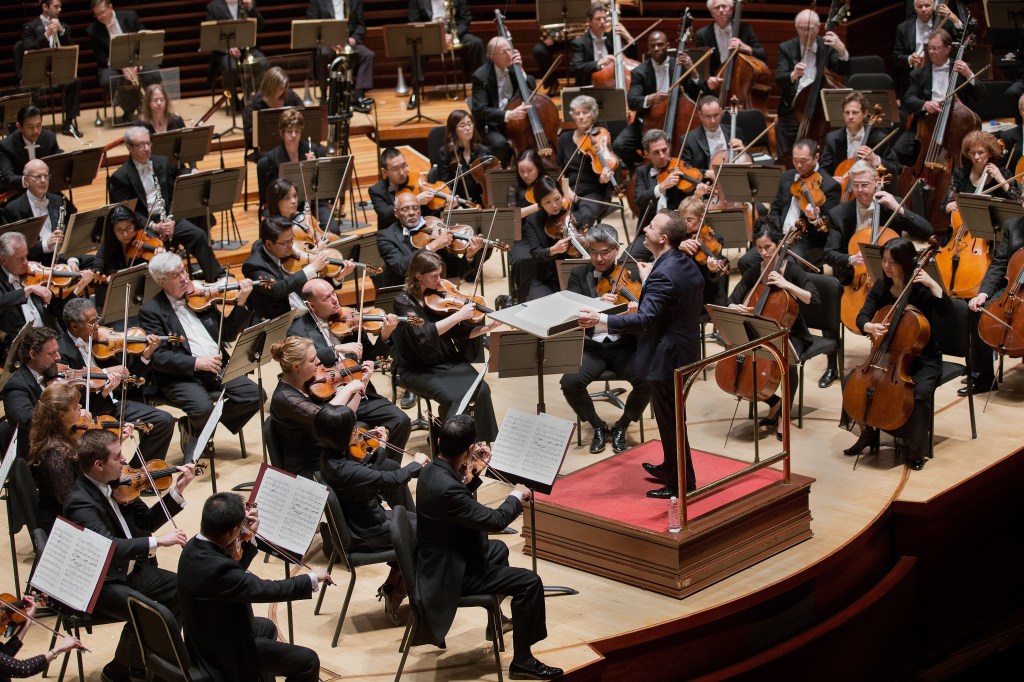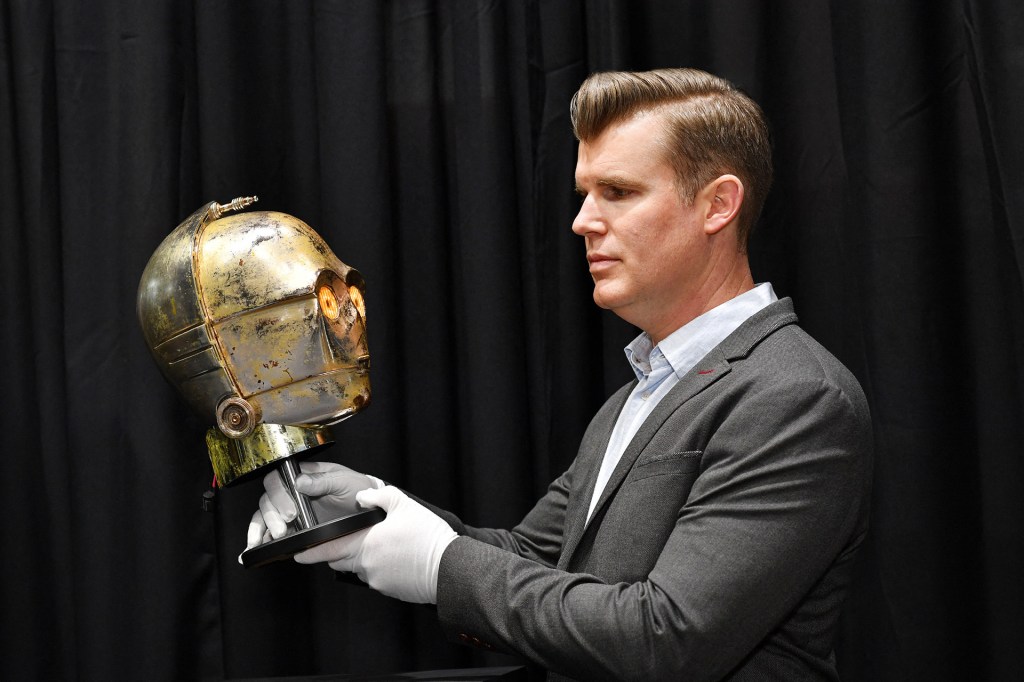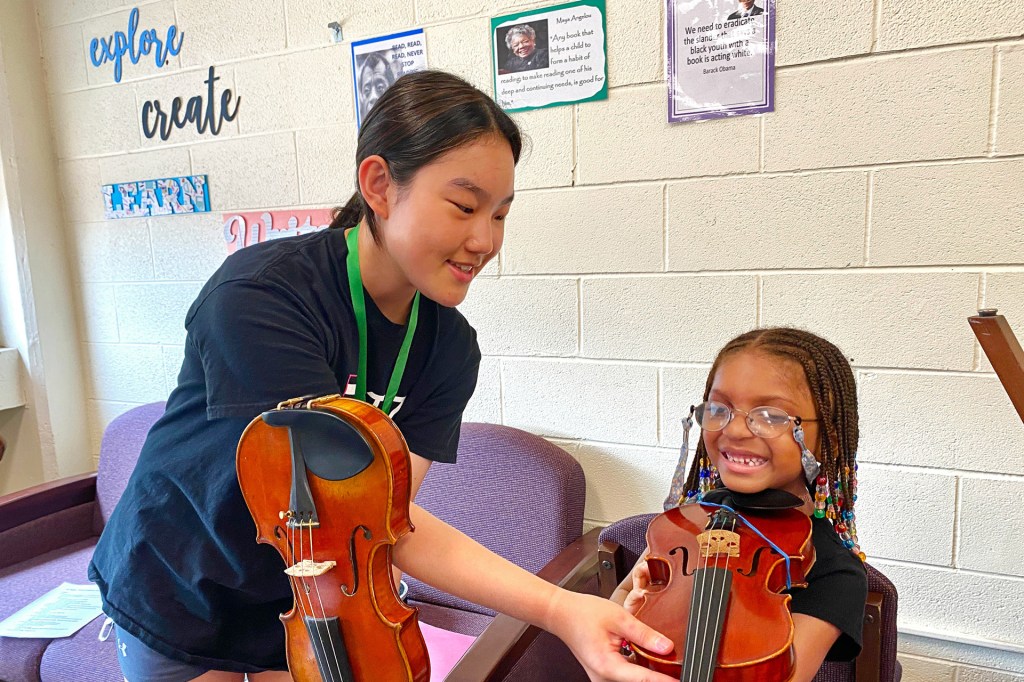The Music Maker

Yannick Nézet-Séguin (pronounced nay-ZAY say- GHEN) conducted some of the world’s most prominent orchestras before joining the Philadelphia Orchestra in 2012, at the age of 37. He has become famous for his youthful energy, and for his passion for getting young people interested in concert music. Now, at 42, he is the orchestra’s Musical Director and lead conductor. TFK sat down to talk with Nézet-Séguin about his work, his early influences, and the importance of orchestral music in our lives.
TIME FOR KIDS:
Can you tell our readers a little about yourself, what you do?
YANNICK NÉZET-SÉGUIN:
For the past 22 years of my life I have been a professional orchestra conductor. In my job I travel to conduct some of the best musicians in the world making great music.
TFK:
Were you interested in classical music when you were a kid?
NÉZET-SÉGUIN:
I was. My parents had a piano in their home. They weren’t musicians. They were actually teachers. So learning to play piano was the normal thing to do in my home. My two older sisters learned. I started when I was five, and I wasn’t that interested in it.
It was when I started to sing in a choir that I really got into classical music. I thought that playing as part of a group was something very special. So I asked my parents to take me to an orchestral concert. I felt the passion right away, like something contagious. I was especially fascinated by the guy waving the stick. When I was ten, I told my parents I wanted to be a conductor. They kind of expected me to grow out of it, but I never did. And here we are, many years later!
TFK:
What is it like to stand up and conduct some of the best symphonies in the world?
NÉZET-SÉGUIN:
It’s very magical and yet it is very mysterious. Every year I am gaining more and more experience. It fascinates me, to be there amid this exchange of energy. I am putting a lot of emotion and energy into the conducting the orchestra, which can be very physical and mental, and in return the orchestra is giving all their energy to the audience. There is something very unique and magical about this. I feel like I am doing the best job in the world.
TFK:
Do you ever get nervous for performances?
NÉZET-SÉGUIN:
I am always nervous about the first rehearsal. But I am rarely nervous for performances, because I study, just like the rest of the orchestra. I study the score, and at the first rehearsal I want to make sure my ideas are clear enough. After a while the nerves disappear, and then it is just joy.
TFK:
Why is it important for kids—and for adults—to listen to classical music?
NÉZET-SÉGUIN:
I think people stereotype classical music. They say, “Oh, that’s old,” and “That’s boring.” But what we call classical music was popular music in its time. And like a classic book, it has survived over time because it is so good. It shows us what our culture and what the world used to be like. It can be very exciting, and it also can be very soothing. We need that kind of gentle quality in our lives. Classical music can bring you hope, excitement, and joy, and it is also very powerful. A hundred musicians giving 100 percent effort is amazing. It’s an experience to see them on stage, sweating, giving it their all.

When he was ten years old, Nézet-Séguin told his parents he wanted to be an orchestra conductor. "I was especially fascinated by the guy waving the stick,” he says of his first visit to the symphony.
COURTESY JESSICA GRIFFINTFK:
How are you trying to get the next generation interested in classical music?
NÉZET-SÉGUIN:
There is a misconception among young people that classical music is boring and stuffy, and that only people with gray hair like it. But when you go to a classical concert, it’s actually very electric and extremely powerful. It’s special to see instruments that are not electronic. There is something fascinating about musicians making music by blowing into instruments and using bows on string instruments. It’s okay if you don’t like it. But my motto is: “Everybody is welcome.” Every generation should feel welcome to identify what they like about classical music. Everybody should try it and see if they like it.
TFK:
What advice do you have for budding musicians?
NÉZET-SÉGUIN:
Eat it, drink it, think of it, live for it. Music is a passion. You can’t become a professional musician if you're not completely passionate about it. It’s a tough field, so you need to work harder than everyone else by practicing, listening, going to concerts, being in chamber groups, being interested in all kinds of repertoire. It won’t feel like work if it’s your passion.












